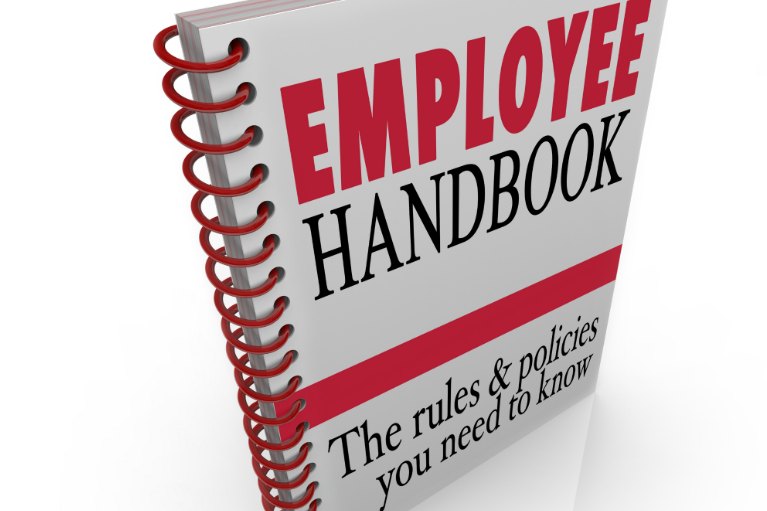Published by EEOC Pandemic Facts
The spread of the Coronavirus (COVID-19) has employers rightly concerned about how to handle threats of contagion in the workplace. Along with those worries come concerns about violating other laws in the process of trying to keep the workplace safe. Specifically, the ADA comes to mind; if we send someone home who appears sick, have we then discriminated against someone with a disability? Thankfully, the Equal Employment Opportunity Commission (EEOC) has answered a number of common questions that employers are asking. We’ve pulled out those we think are most relevant, below, but the full EEOC Pandemic Preparedness webpage can be found here.
And now is also a great time to start thinking — if you haven’t before — about what hardware and software employees may need to enable them to work from home.
As of February 27, 2020, COVID-19 has not yet been declared a pandemic, but it appears that designation is inevitable.
FROM THE EEOC:
The following questions and answers discuss employer actions when the WHO and the CDC report an influenza pandemic.
- May an ADA-covered employer send employees home if they display influenza-like symptoms during a pandemic?
Yes. The CDC states that employees who become ill with symptoms of influenza-like illness at work during a pandemic should leave the workplace. Advising such workers to go home is not a disability-related action if the illness is akin to seasonal influenza or the 2009 spring/summer H1N1 virus. Additionally, the action would be permitted under the ADA if the illness were serious enough to pose a direct threat.
- During a pandemic, how much information may an ADA-covered employer request from employees who report feeling ill at work or who call in sick?
ADA-covered employers may ask such employees if they are experiencing influenza-like symptoms, such as fever or chills and a cough or sore throat. Employers must maintain all information about employee illness as a confidential medical record in compliance with the ADA.
If pandemic influenza is like seasonal influenza or spring/summer 2009 H1N1, these inquiries are not disability-related. If pandemic influenza becomes severe, the inquiries, even if disability-related, are justified by a reasonable belief based on objective evidence that the severe form of pandemic influenza poses a direct threat.
- During a pandemic, may an ADA-covered employer take its employees’ temperatures to determine whether they have a fever?
Generally, measuring an employee’s body temperature is a medical examination. If pandemic influenza symptoms become more severe than the seasonal flu or the H1N1 virus in the spring/summer of 2009, or if pandemic influenza becomes widespread in the community as assessed by state or local health authorities or the CDC, then employers may measure employees’ body temperature. However, employers should be aware that some people with influenza, including the 2009 H1N1 virus, do not have a fever.
Yes. Telework is an effective infection-control strategy that is also familiar to ADA-covered employers as a reasonable accommodation.
- When an employee returns from travel during a pandemic, must an employer wait until the employee develops influenza symptoms to ask questions about exposure to pandemic influenza during the trip?
No. These would not be disability-related inquiries. If the CDC or state or local public health officials recommend that people who visit specified locations remain at home for several days until it is clear they do not have pandemic influenza symptoms, an employer may ask whether employees are returning from these locations, even if the travel was personal.(31)
- May an employer encourage employees to telework (i.e., work from an alternative location such as home) as an infection-control strategy during a pandemic?
Yes. Telework is an effective infection-control strategy that is also familiar to ADA-covered employers as a reasonable accommodation.(35)
In addition, employees with disabilities that put them at high risk for complications of pandemic influenza may request telework as a reasonable accommodation to reduce their chances of infection during a pandemic.
- During a pandemic, may an employer require its employees to adopt infection-control practices, such as regular hand washing, at the workplace?
Yes. Requiring infection control practices, such as regular hand washing, coughing and sneezing etiquette, and proper tissue usage and disposal, does not implicate the ADA.
- During a pandemic, may an employer require its employees to wear personal protective equipment (e.g., face masks, gloves, or gowns) designed to reduce the transmission of pandemic infection?
Yes. An employer may require employees to wear personal protective equipment during a pandemic. However, where an employee with a disability needs a related reasonable accommodation under the ADA (e.g., non-latex gloves, or gowns designed for individuals who use wheelchairs), the employer should provide these, absent undue hardship.
- During a pandemic, may an employer ask an employee why he or she has been absent from work if the employer suspects it is for a medical reason?
Yes. Asking why an individual did not report to work is not a disability-related inquiry. An employer is always entitled to know why an employee has not reported for work.
- May an ADA-covered employer require employees who have been away from the workplace during a pandemic to provide a doctor’s note certifying fitness to return to work
Yes. Such inquiries are permitted under the ADA either because they would not be disability-related or, if the pandemic influenza were truly severe, they would be justified under the ADA standards for disability-related inquiries of employees.
As a practical matter, however, doctors and other health care professionals may be too busy during and immediately after a pandemic outbreak to provide fitness-for-duty documentation. Therefore, new approaches may be necessary, such as reliance on local clinics to provide a form, a stamp, or an e-mail to certify that an individual does not have the pandemic virus.
Additional advice from the CDC:
CDC is on the job. Below are some links to useful information. The basic takeaways are actually quite simple, and go something like this:
- Wash your hands, wash your hands, wash your hands. For at least 20 seconds.
- Keep your hands off your face.
- If you feel sick, stay home.
- If your employees feel sick, encourage them to stay home.
- If your employees are visibly sick, send them home. This may cost you both money and productivity, but if they infect the rest of your workforce, that will ultimately be much more costly and dangerous to public health. Check state law for any “reporting time pay” requirements.
- If you cough or sneeze, do it into a tissue if possible, and then throw it away. Your elbow/upper arm is next best. If you accidentally cough or sneeze into your hands, wash them immediately and disinfect anything you touched on your way to do so (e.g., doorknobs and sink handles).
- Disinfect frequently touched objects often (e.g., doorknobs, sink handles, fridge and microwave doors, water cooler buttons, your phone).
Encourage employees to follow these guidelines by distributing them or posting them around the workplace. And now is also a great time to start thinking — if you haven’t before — about what hardware and software employees may need to enable them to work from home.




